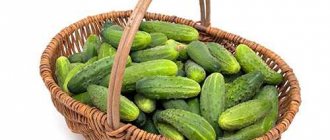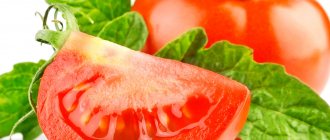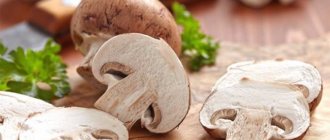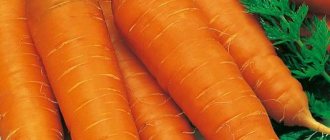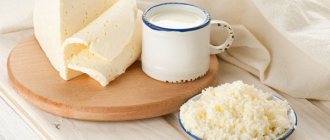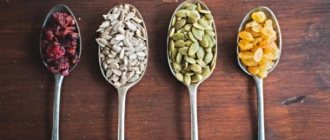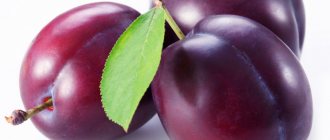Hidden benefits and harms: cucumbers and pregnancy
Today, cucumbers are grown and used for cooking almost all over the world, but not everyone can consume them in unlimited quantities.
Thus, for some, green fruit is an irreplaceable source of low-calorie nutrition containing iodine, while for others it is a heavy product that causes bloating and heaviness in the stomach.
That is why a pregnant woman, who is already subject to many changes during the period of bearing a baby, should become familiar with the benefits and dangers of such a vegetable.
Cucumber belongs to the pumpkin family, and its genetic composition is 95% similar to melon.
Beneficial features
Cucumbers are quite healthy. They contain many active components that are necessary for both the expectant mother and her baby. Fresh vegetables are rich in water. This fluid is necessary for the cells of the female body to ensure their excellent functioning. Eating cucumbers helps normalize water and electrolyte balance in a pregnant woman’s body. In addition to natural water, fresh vegetables also contain important minerals that have a beneficial effect on the functioning of all organs. Mineral compounds are also necessary for the full intrauterine development of the fetus.
These healthy vegetables also contain elements such as:
- pantothenic acid;
- vitamin B complex;
- ascorbic acid;
- choline;
- beta-carotene;
- potassium;
- magnesium;
- sodium.
All these minerals, entering the body of a pregnant woman, improve the course of intracellular processes. Mineral compounds are also necessary for the formation of organ systems in the baby. Insufficient intake of these substances can lead to the formation of various pathologies both in the expectant mother and in the baby in her womb. You can enjoy fresh cucumbers without harming your figure. Thus, 100 grams of vegetables contain only 14–16 kilocalories, while the protein and fat content is minimal. That is why cucumbers can be included in the diet of women who are watching their weight.
A common problem that occurs during pregnancy is the appearance of edema. They usually appear after the second trimester. However, some women may experience swelling more frequently during pregnancy. Dealing with severe swelling can be difficult. In order to reduce the severity of adverse symptoms, doctors recommend that expectant mothers suffering from this pathology carefully monitor their diet. The menu should not contain overly salty foods. At the same time, fresh vegetables, including cucumbers, help reduce the appearance of swelling on the body.
To ensure that swelling no longer bothers you, it is better to eat fresh vegetables.
Pickled cucumbers contain too much salt, vinegar and spices. Such a vegetable snack can not only cause stomach pain, but also cause heartburn. Such dyspeptic symptoms can overshadow the course of any pregnancy. After eating fresh vegetables, these symptoms do not occur.
Women who eat enough fresh cucumbers look better. The water contained in vegetables helps improve skin tone, which makes the skin look fresher and more rested. In order for the diuretic effect after eating cucumbers to be maximum, they should be eaten fresh without adding a large amount of salt. Adding salt to cucumbers causes too much sodium chloride to enter the body, a substance that promotes water retention.
Another common problem that many expectant mothers may face is constipation. The contractile function of the intestines begins to decline due to changes occurring in hormonal levels during pregnancy. This often leads to constipation in a pregnant woman. Even women who did not experience difficulty with bowel movements before pregnancy can face this problem. In order to normalize intestinal function, doctors recommend including more foods that contain fiber in your diet. Natural fibers activate the contractile function of the intestines, which leads to more regular bowel movements. If the expectant mother regularly consumes vegetables rich in dietary fiber, then her risk of developing constipation is significantly reduced.
In order to speed up intestinal motor function, it is better to eat cucumbers with the peel. It contains the maximum amount of fiber, which helps improve digestion. Fresh cucumbers also contain substances that can have a beneficial effect on lipid balance. Thus, regular consumption of these vegetables helps reduce cholesterol deposits on blood vessels. Such exposure leads to a reduction in the risk of developing dangerous vascular pathologies.
Cucumbers during pregnancy: is it possible or not?
Perhaps the first sign of pregnancy is a woman’s craving for salty and sour foods. Lightly salted cucumbers and tomato juice, consumed in large quantities by a girl, even before pregnancy is determined using a test, are a sure sign of conception. That is why, if you have the desire to eat a few cucumbers with gusto, you should think about the likelihood of future motherhood.
The question of the benefits and harms of such a product during pregnancy is a controversial one. Some doctors believe that cucumber is quite difficult to digest in the gastrointestinal tract, while others do not consider it harmful. However, when leaning in one direction or another, it is worth considering a number of features:
- Woman's age.
- Gestational age.
- Presence of liver and stomach diseases.
- Taste preferences of the expectant mother.
If you really want to eat a cucumber, and this process will bring a lot of pleasure, you should not deny yourself such joy. You just need to remember the number of servings, their regularity and combination with other products.
Benefit
When determining the likelihood of consuming a vegetable during pregnancy, it is worth considering in more detail its beneficial and negative qualities. Among the useful properties it is worth noting:
- Due to the iodine content (0.003 mg) it stabilizes the functioning of the thyroid gland.
- Alkaline salts prevent the formation of kidney stones and slow down the natural aging process.
- It is used as a mild laxative for chronic constipation, which is important during late pregnancy.
- The antibacterial properties of lightly salted cucumbers help cope with the first manifestations of tonsillitis and ARVI.
- The potassium contained normalizes blood pressure.
- Stabilizes cholesterol levels in the blood and normalizes kidney function.
All these beneficial properties are offset by the fact that purchased vegetables, especially out of season, may contain large amounts of nitrates. Therefore, if you want to get exceptional benefits, you should eat homemade cucumbers from your home garden.
Vitamins contained in cucumbers (homemade or in the summer), groups A and B (B1, B2, B3, B5, B6 and B7, B9, as well as vitamin C (10 mg) and E help normalize the hormonal and emotional background of a woman, stabilize the work of the heart muscle and promotes the healing of wounds on the skin.
Harm
There are also harmful properties, but in most cases they are due to the fact that the product was not stored within the required temperature limits, and additional heat treatment was used.
Thus, canning with vinegar devalues all the beneficial properties of the product, turning it into a useless food product “for a snack”, nothing more.
Harm of cucumber and contraindications:
- Diseases of the digestive system.
- The lactation period is the first six months.
- Pickles should not be given to children under 3 years of age.
- Ulcer.
- Gastritis.
- Pancreatitis in acute form.
Fresh cucumbers are good for children and adults. You only need to take into account the method of their preparation and the absence of nitrates in them.
What about salted and pickled
Have you ever wondered why pregnant women crave pickles? Doctors did not reach consensus on this matter. But most experts are inclined to conclude that the reason lies in the increased production of progesterone. This hormone has a destructive effect on the vascular system, causing a whole revolution in the body of the expectant mother. It is expressed by dilated arteries with weakened walls, slow blood flow, low blood pressure, drowsiness, dizziness and shortness of breath.
Switching to self-preservation instincts, the body tries to independently find a way out of the current situation. And since sodium, that is, salt, helps normalize blood pressure, the need for it automatically increases.
Important! The daily salt intake for a healthy person is no more than 6 grams.
When a pregnant woman gets a lot more salt into her body, she increases the amount of water she drinks per day. As a result of this complex physical and chemical chain, the condition of the expectant mother gradually returns to normal.
Following the demands of your body, you do not even suspect what serious processes are happening inside. Meanwhile, excessive consumption of pickled and pickled cucumbers during pregnancy can lead not only to damage to tooth enamel, caries and excess weight gain, but also unbalance the entire body .
As a rule, expectant mothers want marinades and pickles only in the first trimester until the placenta takes responsibility for hormonal levels. Experts believe that during this period the daily salt intake should increase to 12 grams, and, starting from the 7th month, this figure should gradually decrease to 3 grams.
Women with hypertension, diseases of the kidneys, thyroid gland, liver and cardiovascular system need to be especially careful. 1-2 cucumbers will not cause significant harm, but you should not tease your body with pickles when you cannot give it this “delicacy” anymore.
Important! Under no circumstances buy greenhouse cucumbers in early spring. They certainly won't be useful to you. This is a “nitrate bomb”. If you can’t resist it, cut off the entire skin and a few centimeters at both ends.
.
What is the best form for pregnant women to eat cucumbers?
Since cucumber is a diuretic product due to the alkaline salts it contains, it is recommended to consume it in small quantities 4-5 hours before bedtime. The form in which the vegetable is consumed also plays a significant role. During pregnancy, due to the peculiarities of hormonal changes and the presence of stress on the digestive and excretory systems, it is recommended to avoid certain cucumber dishes.
Salted barrels without vinegar
Barrel lightly salted cucumbers are the favorite delicacy of most pregnant women. It is these authentic recipes that allow you to preserve the vitamin complex of the product without spoiling it by heat treatment.
When preparing barrel cucumbers, it is worth remembering that vitamin C is destroyed at temperatures above 55 degrees, and therefore it is recommended to fill it with cooled, previously boiled, salted water.
Fresh
Only cucumbers picked from the garden are the best source of vitamins and alkaline salts.
However, it is worth remembering that the amount of vegetables consumed per day should not exceed 400 grams. It is also worth monitoring the consumption of fermented milk products: the interval between taking milk and cucumbers is at least 2 hours.
Canned
Canned cucumbers with vinegar (regardless of its quantity and quality) are harmful to the health of not only a pregnant woman, but also an adult. The use of such a product during pregnancy is undesirable. It is better to replace them with fresh or salted cucumbers.
Canned foods contain not only an alarming amount of salts, but also preservatives, which have an extremely negative impact on a woman’s health and the development of the unborn baby. In addition, salts from canned food are not removed from the body for a long time, which during pregnancy is fraught with water retention in the body and edema.
Lightly salted
Lightly salted cucumbers eaten in small quantities will not harm a pregnant woman. However, the number of cucumbers should not exceed 3-4 pieces per day. It is also worth familiarizing yourself with the presence of seasonings in pickles. There should be no horseradish, hot peppers and garlic in large quantities.
If you add black currant, grape and parsley leaves to the marinade for lightly salted cucumbers, then this product will only be beneficial. Currant leaves contain healthy oils and vitamin C, which is not destroyed, but is absorbed into cucumbers when pickled.
Fresh cucumbers
Well, who doesn’t like to crunch on fresh cucumbers! Moreover, they almost never cause, cleanse the body and enrich it with vital and. Scientists have proven that the vegetable consists of 95% water, which can be obtained in laboratory conditions through initial distillation and subsequent freezing. The remaining components are also no less valuable. These are thiamine, pantothenic and acids, riboflavin, nicotinamide, phyllocholine, cyanocobalamin, biotin, pyridoxine.
As well as the most important minerals: potassium, sodium, chlorine, manganese, cobalt, copper, selenium, chromium, molybdenum, zinc, fluorine. With all this useful variety in 100 grams
The product contains only
14 kilocalories
.
Did you know?
The fruits of cucumber vines are unique because they are the only representatives of the vegetable world that reach the peak of taste and smell when unripe. This fact fully explains the etymology of their ancient name “aguros”, which translates as “unripe”.
Beneficial features
Fresh cucumbers are simply necessary during... The coarse fibers they contain help normalize the functioning of the digestive organs, folates protect blood vessels from damage, and phytosterols block the effects of cholesterol. Along with these useful qualities, cucumbers freshly picked from the garden take on the function of controlling the level in the human body. The inherent fiber gives a feeling of satiety and allows you to maintain normal levels, while simultaneously removing toxic accumulations and fats from the tissue fibers. In addition, provided that the vegetable is consumed in reasonable quantities, it helps relieve and improves blood circulation.
Cucumbers are strongly recommended to absolutely everyone, especially when it comes to a fresh product. According to experts, this vegetable is simply indispensable in the most important biological processes that occur daily in our bodies. As a result, we get properly functioning nervous, cardiovascular, circulatory systems and the gastrointestinal tract.
Did you know?
Today, China is considered the world leader in cucumber production. The climatic conditions of the country contribute to the high turnover of this production.
Contraindications and harm
In cases of uncontrolled eating and mono-diets, fresh cucumbers can bring not only benefits, but also harm. In addition, it is absolutely impossible to predict what will happen more. Doctors are confident that cucumbers alone, despite their rich composition, cannot provide the body with all the components necessary for full life and well-being. That is why it is categorically not recommended to focus only on these vegetables. The body, especially in cases of pregnancy, must get all the minerals in the right quantities.
Important!
Abuse of cucumbers is fraught with serious disruptions in the functioning of all organs.
To create serious health problems for yourself, it is enough to drink 10 ml of cucumber juice at a time or increase the daily portion of this drink beyond the liter - an imbalance in water balance is guaranteed. Women who suffer from enterocolitis and urolithiasis should also be careful with this product. Don't even expect to eat plenty of fresh cucumbers. During the period they are contraindicated because they cause bloating and intestinal disorders in the baby.
How often can you eat cucumbers?
Even the most useful medicine, if its dosage is not observed, poses a threat and danger, especially during pregnancy.
Therefore, in order to benefit from the products, it is worth remembering their safe quantity. The same applies to eating cucumbers. It is safe to eat during pregnancy on the following day:
- 1-2 lightly salted cucumbers (or 150-200 grams).
- 300-500 grams of fresh homemade.
- Barrels - no more than 300 grams per day.
- Canned products are prohibited until the end of lactation.
Contraindications
Delicious fresh crispy cucumbers are an excellent product. They contain practically no substances that can harm the body of the expectant mother or her baby. However, even the consumption of cucumbers has several contraindications. Cucumbers are contraindicated for people who are allergic to them. It is worth noting that this pathology is quite rare. This pathological condition can manifest itself in different ways. Most often, an allergy manifests itself as a rash on the body, which is very itchy and causes discomfort.
Women who have an individual intolerance to these vegetables should not eat cucumbers. In this case, after eating vegetables, the expectant mother may develop severe pain in the abdomen, as well as bowel dysfunction. Expectant mothers suffering from chronic stomach diseases should eat crispy vegetables with caution. If you have a peptic ulcer, you should definitely consult your doctor before including fresh vegetables in your menu. Women suffering from chronic enteritis, which occurs with the appearance of frequent diarrhea, should also seek preliminary consultation.
When eating cucumbers, be sure to remember the quantity. Eating too many vegetables can cause gas and bloating in the stomach.
A moderate portion of vegetables will only benefit the body. It is better for expectant mothers to give preference to fresh vegetables. Canned pickled cucumbers contain quite a lot of salt and vinegar - ingredients that can harm the body. Pickled cucumbers are strictly contraindicated for peptic ulcers and pancreatitis. Expectant mothers who suffer from these diseases should remember this. Also, pregnant women suffering from hypertension should not eat pickled vegetables.
The abundance of salt in such a vegetable snack can increase blood pressure, which in turn will lead to the development of complications of the disease.
Who should avoid cucumbers during pregnancy?
Despite all the benefits of such a product as cucumber, there is a category of people who are prohibited from eating them in any form.
In particular, people with diseases of the gastrointestinal tract, esophagus and stomach, gastritis and ulcers, and kidney disease - pyelonephritis should give up the vegetable. Gastroendocrinologists have an extremely negative attitude towards the consumption of fresh or pickled cucumbers by people with chronic pancreatitis, since in this case gas formation and fermentation of food in the stomach increases.
Cucumber during pregnancy is not one of the prohibited foods, but requires proper preparation. To get the maximum benefit and pleasure from eating such a product, it is worth remembering about vitamins, which tend to be destroyed during heat treatment. In this case, the most useful vegetable is from your own garden without nitrates.
How to choose when purchasing
If you don’t have your own cucumber bed, you’ll have to trust the sellers at the market and in stores. Today, the “from your own garden” brand is especially popular among consumers. This is probably why there are always sellers with so-called homemade vegetables and fruits on the side of busy highways, and at the market older saleswomen will assure you of the quality and safety of their goods. You should not trust blindly and fall for such calls. And in order not to be disappointed with the purchase and not to harm yourself, it is enough to use the advice of experienced gardeners
:
- Carefully inspect the product and evaluate its visual characteristics. It is better to choose small cucumbers for purchase, since large specimens are often overripe and bitter in taste (the standard size of a good cucumber ranges from 10–15 cm).
- High-quality vegetables always have uniform color and elastic structure. They also give off a pleasant aroma.
- When pressed, the vegetable should not deform or lose its shape.
- Pay special attention to the area around the stalk - it should be firm.
- The pimples present on the skin of cucumbers should also have elasticity.
Did you know?
Despite the fact that the native environment of cucumbers is Indian areas, Ukrainians and Belarusians decided to perpetuate the common vegetable in the form of a monument. Such masterpieces were installed in Nezhin and Shklov.
Harm of cucumbers
The unpleasant disadvantages of consuming cucumbers in excessive quantities include:
Gas formation and dyspepsia;
Excessive water content will increase the frequency of urination, which may cause discomfort;
Sometimes cucumbers can cause allergic reactions leading to itching and swelling;
Contain toxic substances such as cucurbitacin and tetracyclic triterpenoids, which give them a bitter taste and are life-threatening if taken in excess quantities.
Precautionary measures
- acute kidney pathology;
- urolithiasis (with caution and after consultation with a doctor);
- diarrhea of any origin;
- exacerbation of peptic ulcer, gastritis, colitis.
Salted and pickled cucumbers also contribute to the deterioration of acute diseases of the digestive tract (including gastritis, cholelithiasis, peptic ulcer). It is not recommended to indulge in canned vegetables for heartburn in late pregnancy, arterial hypertension and other pathologies of the heart and blood vessels. Women who are prone to rapid weight gain should also not overuse salted and pickled cucumbers. Excessive consumption of canned foods can cause fluid retention in the body and cause edema.
Can a pregnant woman drink pickle juice? In moderation and only if it is pickled cucumber brine (preferably homemade). It is not recommended to drink the marinade containing pickled cucumbers.
It is well known that the expectant mother during pregnancy needs to pay close attention to her diet, because the food consumed gives strength to the woman and has an impact on the development and health of the child.
It is known that during pregnancy, women's taste preferences change, and they can even eat foods that they previously could not tolerate.
Expert answer: why pregnant women crave salty foods (video)
High salt intake is not considered a pathology in early pregnancy, and yet common sense and respect for the body should be a priority for every pregnant woman.
Cucumber is the fourth most cultivated vegetable. Very rarely it causes allergic reactions, it is rich in vitamins and microelements, so its nutritional advantages are higher than its disadvantages. However, how do pregnancy and cucumbers combine? And what do you need to know about pickles, cravings for which are considered a sign of pregnancy? Let's figure it out.
Precautionary measures
Tips for choosing cucumbers will not be superfluous:
- a wilted tail of a cucumber indicates that it is not fresh; you should not buy such a product;
- yellowness on cucumbers also indicates that the vegetable is overripe;
- an elastic and hard cucumber - this is exactly what we are looking for; if the vegetable is soft to the touch - there can be no talk of freshness;
- cucumbers “as in advertising” may be products that have not avoided fertilization with nitrates; there is no need to talk about healthy food;
- very large cucumbers indicate that they are overripe, and besides, they usually contain a lot of...
Delicious crispy cucumbers, especially from your own garden, a wonderful vegetable that is healthy for almost everyone.
Pregnant women should not part with this product throughout the entire nine months, which will also be a wonderful cosmetic product.
.
Why are cucumbers needed? — program “Live Healthy!”
Benefits of cucumbers
Many doubt their benefits. However, it is not. What does a pregnant woman get from eating cucumbers?
Fresh cucumbers:
- Low-calorie product;
- Prevents dehydration;
- Natural mild diuretic;
- Improves the appearance of the skin;
- Improves mood;
- Rich source of dietary fiber;
- Improve immunity;
- Reduce the risk of abnormalities during fetal development;
- Normalize blood pressure;
- Helps strengthen tooth enamel;
- Lowers blood sugar levels.
If you suffer from morning sickness, eat a few slices of cucumber.
Compound
As an agricultural crop, cucumber has been known to mankind for more than 6 thousand years. Hot India is considered its homeland. In the tropical foothills of the Himalayas, cucumber is still found growing wild. Currently, the vegetable is widespread and has many varieties and varieties.
Fresh cucumbers contain the following beneficial elements:
- vitamins A, B1, B2, B9, C;
- mineral elements: potassium, iodine, iron, phosphorus, sodium, chlorine, magnesium, manganese, copper, chromium, zinc, silver;
- water (up to 95%);
- Sahara;
- valuable amino acids;
- pectins.
When properly processed, salted and pickled cucumbers retain a considerable part of the nutrients, including valuable vitamins. The calorie content of fresh cucumbers is no more than 15 kcal, pickled and salted cucumbers - about 16-25 kcal.
